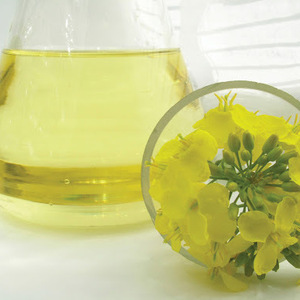Corteva, Bunge, Chevron partner on winter canola production

March 15, 2023
BY Corteva Inc.
Corteva Inc., Bunge and Chevron U.S.A. Inc., a subsidiary of Chevron Corp., announced March 14 a commercial collaboration to introduce proprietary winter canola hybrids that produce plant-based oil with a lower carbon profile. The goal is to increase the availability of vegetable oil feedstocks primarily for the growing domestic renewable fuels market. The companies plan to introduce the winter canola crop into the southern United States with an intention to create a new revenue opportunity for farmers with a sustainable crop rotation.
The proprietary winter canola hybrids from Corteva can be used in a double crop system, following soybeans or cotton. “We’re pleased to work with Bunge and Chevron to bring a new option in the southern U.S. that will deliver solutions for farmers to increase productivity and sustainability on their acres, as well as contribute to the need for renewable and less carbon-intensive fuel options,” said Chuck Magro, CEO, Corteva Agriscience.
Advertisement
Advertisement
Bunge Chevron Ag Renewables, the joint venture between Bunge and Chevron, plans to contract with farmers to purchase the harvested winter canola crop and use the oil to produce renewable fuel. In addition to providing farmers a new income opportunity, adding winter canola to a rotation provides a cover crop which can enhance soil health by holding more nutrients, water, and carbon in the soil. A pilot program is expected to be conducted in the 2022-23 growing season to fine-tune best management practices.
“Rotational cover crops play a key role in our strategy to continue to develop next generation lower carbon feedstocks. As a leader in oilseed processing, we are pleased to work together with Corteva and Chevron to bring this crop innovation to farmers and process it into sustainable solutions for consumers. This is another step in our commitment to creating clear paths to support the decarbonization of the industry,” said Greg Heckman, Bunge CEO.
The companies plan to continue to explore opportunities to sustainably improve farming options and produce lower carbon renewable fuels.
Advertisement
Advertisement
“Chevron is committed to advancing a lower-carbon energy future, and we recognize renewable fuels like biodiesel and renewable diesel are a solution to do that,” said Kevin Lucke, President of Chevron Renewable Energy Group. “Feedstock innovation is a critical element of the growth of the renewable fuels industry, and innovative solutions like double-crop winter canola not only benefit the lower-carbon future, but also benefit farmers, consumers and the environment.”
Related Stories
The U.S EPA on July 17 released data showing more than 1.9 billion RINs were generated under the RFS during June, down 11% when compared to the same month of last year. Total RIN generation for the first half of 2025 reached 11.17 billion.
The U.S. EPA on July 17 published updated small refinery exemption (SRE) data, reporting that six new SRE petitions have been filed under the RFS during the past month. A total of 195 SRE petitions are now pending.
European biodiesel producer Greenergy on July 10 confirmed plans to shut down its biodiesel plant in Immingham, Lincolnshire, U.K. The company temporarily suspended operations at the facility earlier this year.
Aemetis Inc., a renewable natural gas and biofuels company, announced on July 17 that its India subsidiary, Universal Biofuels, appointed Anjaneyulu Ganji as chief financial officer, effective July 17.
Avia Solutions Group, the world's largest ACMI (aircraft, crew, maintenance, and insurance) provider, has partnered with DHL Express to reduce greenhouse gas emissions from its international shipments using SAF.
Upcoming Events










